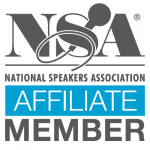The numbers are in, and they are astounding. America has officially gone wild for the World Cup, providing prime evidence of soccer’s—nay, football’s—ascending rise in popularity stateside. The Yank’s match against Portugal was a bit of David v. Goliath situation, as Portugal—a team loaded with international superstars—was universally expected to defeat the US Men’s National Team. That didn’t happen of course, and the television ratings were anything but Davidian.
Sunday’s match drew over 24.7 million viewers, the highest ratings ever for any US soccer event. For a comparison, the fifth game of this year’s NBA Finals between the Miami Heat and the San Antonio Spurs drew 18 million. The 9.6 Nielsen rating the US/Portugal match received also does not reflect the hordes of people who attended viewing parties (Grant Park in Chicago reportedly attracted over 20,000 fans, to the point where they began turning people away).
Or the estimated 200,000 US faithful that purchased tickets to attend the World Cup live.
The United States was second only to the host-nation in terms of ticket-sales, and as evidenced by the raucous chants of “I believe that we will win” emanating from the Arena de Amazonia in Manaus on Sunday, they attended in full-force.
Soccer’s popularity growth in the States has obviously been a glacial process, but since David Beckham decided to take his talents to Los Angeles and Landon Donovan watched his star rise to the level of ‘National Hero’ in the 2010 World Cup, the sport has expanded exponentially. ESPN and FOX have television deals in-place to broadcast Major League Soccer games, sports stores are stocking English Premiere League jerseys alongside US-based gear and MLS is continuing to add franchises in new cities (including Orlando.)
A sport that has struggled mightily to gain a foothold in the United States has finally has its hooks set in the hearts of the US sports fan population. There’s no denying it anymore. Part of this, I feel, is the inclusivity and unity that an event like the World Cup promotes. Just search “Jermaine Jones goal fan reaction” on YouTube for throngs of people collectively losing their minds. Strangers hugging strangers. Thousands flooding street-parties and local watering holes to root for the same team. It’s a feeling that I personally have never experienced watching a sporting-event prior to the 2014 World Cup, and hope resonates in the minds of Americans once it’s over—building on the momentum and viewership gains this summer.






Leave a Reply